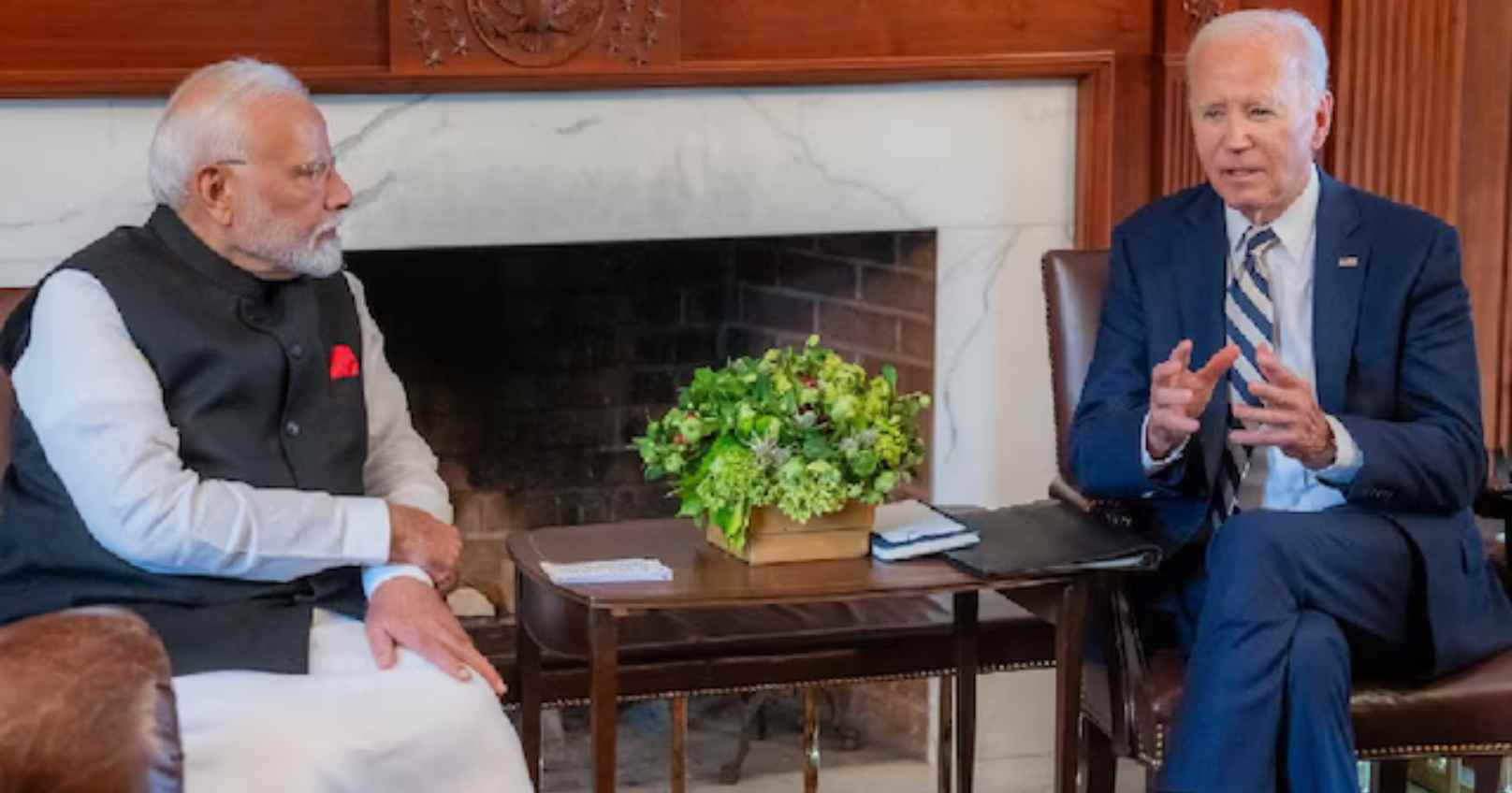Prime Minister Narendra Modi and U.S. President Joe Biden held bilateral talks during the Quad Summit in Delaware, USA, focusing on several key issues including defense partnerships, semiconductor technology, and global cooperation. The discussions underscored the strong strategic relationship between the two nations, with both leaders expressing confidence in the growing U.S.-India partnership, which is built on shared democratic values and robust people-to-people ties.
MQ-9B Predator Drone Deal and Defense Cooperation
One of the major topics of discussion was the defense collaboration between India and the U.S., particularly India's acquisition of 31 MQ-9B Predator drones. These drones, comprising 16 Sky Guardian and 15 Sea Guardian models, are set to bolster India’s intelligence, surveillance, and reconnaissance (ISR) capabilities. The drones, which can carry missiles and bombs, have advanced stealth capabilities and can operate continuously for up to 35 hours without refueling. The deal is valued at $3.99 billion and will enhance India's naval and aerial defense.
The leaders also touched on the ongoing U.S.-India defense initiatives, including co-production agreements for jet engines, munitions, and mobility systems under the U.S.-India Defense Industrial Cooperation Roadmap. They also discussed the INDUS-X initiative, which promotes collaboration in defense technologies, and recent defense exercises like Yudh Abhyas, which featured cutting-edge systems such as the Javelin and Stryker.
Semiconductor Plant in Kolkata
Modi and Biden also announced plans to establish a semiconductor fabrication plant in Kolkata. This initiative, supported by the India Semiconductor Mission and a partnership with U.S.-based GlobalFoundries, will focus on advanced sensing, telecommunications, and green energy technologies. The plant is expected to drive innovation in areas like AI, zero-emission vehicles, and data centers while creating job opportunities in both nations.
India’s Bid for Permanent Membership in the UN Security Council
During the talks, President Biden reaffirmed U.S. support for India’s permanent membership in the United Nations Security Council, highlighting India’s growing global leadership role. Modi’s recent diplomatic engagements in Poland and Ukraine were also praised, particularly his efforts toward peace and humanitarian assistance for Ukraine.
Clean Energy Collaboration
The two leaders further discussed their joint commitment to advancing clean energy. They introduced a new U.S.-India roadmap aimed at expanding clean energy supply chains. The initial phase of this plan includes unlocking $1 billion in multilateral financing for renewable energy projects, energy storage systems, and zero-emission vehicles. This initiative underscores both countries' dedication to tackling climate change and promoting sustainable energy development.
Maritime Security and Regional Stability
Modi and Biden also addressed the importance of securing critical maritime routes and ensuring freedom of navigation, particularly in the Indo-Pacific and Middle East regions. India will co-lead the Combined Task Force 150 in 2025, contributing to maritime security in the Arabian Sea. The discussions highlighted shared regional and global security concerns, including ongoing challenges in the Indo-Pacific region.
The bilateral talks marked another significant step in deepening the U.S.-India partnership, with a focus on defense, technology, global governance, and clean energy.







